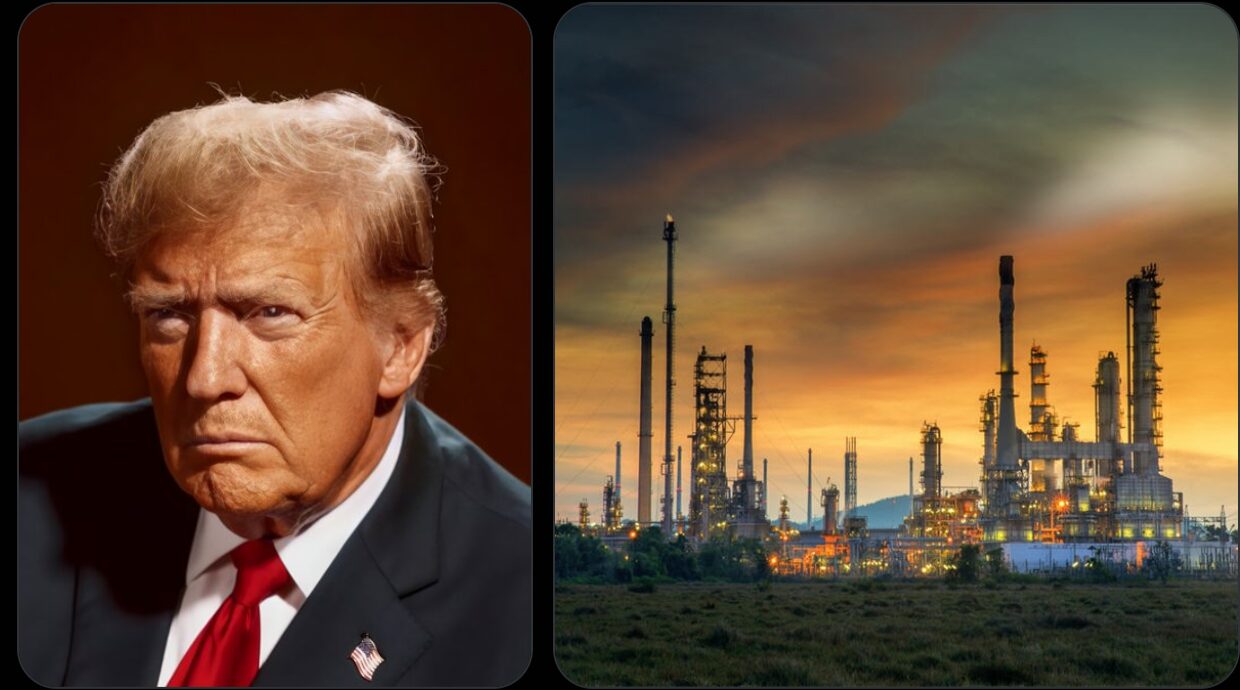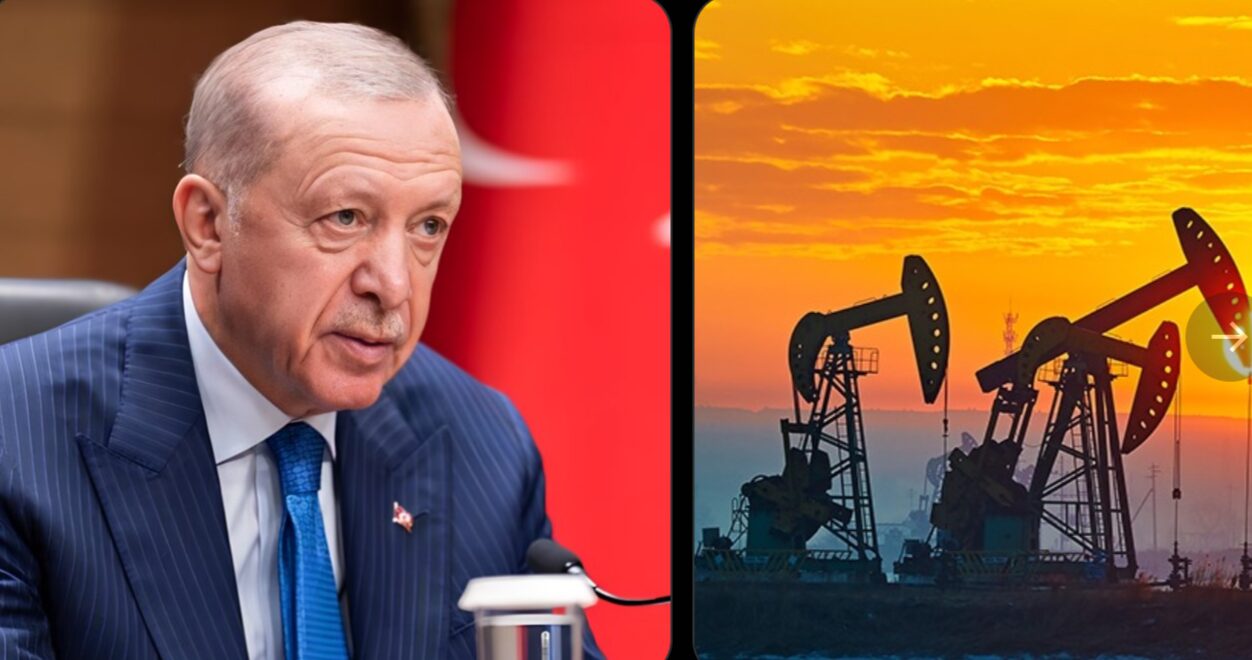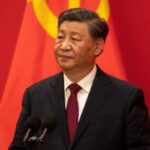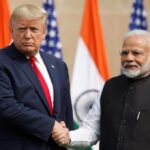President TRUMP DEMANDED OPEC SLASH OIL prices, today in Davos
At the World Economic Forum in Davos today, former U.S. President Donald Trump made a bold demand, urging OPEC (the Organization of the Petroleum Exporting Countries) to slash oil prices. Speaking before world leaders and economic experts, Trump expressed frustration over rising global oil prices and the impact they have on consumers, businesses, and the global economy. His comments come at a time of growing global concern over inflation, energy prices, and economic uncertainty, with many countries struggling to balance energy demands and economic stability.
Trump’s demand for OPEC to cut oil prices is a direct response to the challenges posed by high fuel costs and their effect on the global economy. Oil prices have seen significant increases in recent years, driven by factors such as geopolitical tensions, supply chain disruptions, and shifting energy demands. As the world seeks to recover from the economic disruptions caused by the COVID-19 pandemic, these rising prices have become a major point of contention for many, particularly in energy-dependent nations.
Trump’s Frustration with OPEC and Global Energy Prices
During his address at Davos, Trump made it clear that he believes OPEC, a consortium of 13 oil-producing nations, has the power to significantly influence global oil prices. Trump argued that the cartel’s pricing decisions have far-reaching effects on economies worldwide and that it is within their capacity to reduce prices to benefit consumers and businesses.
“I’ve said this before, and I’ll say it again — OPEC has the ability to cut oil prices,” Trump remarked during his speech. “It’s not just about the U.S.; it’s about the world. High oil prices are hurting global economies and making it harder for people to thrive.” Trump emphasized that a reduction in oil prices would alleviate inflationary pressures and provide economic relief for millions of people around the world who are grappling with higher costs of living.
OPEC, which controls a significant portion of the world’s oil production, often has the ability to influence the supply of oil and, by extension, its price. However, the organization has typically been cautious in making such moves, often balancing economic, political, and environmental concerns. Trump’s demand is part of a broader conversation about energy policy and the global reliance on fossil fuels.
The Impact of High Oil Prices on Global Economies
High oil prices have wide-reaching effects on global economies, particularly in countries that are heavily dependent on oil for transportation and energy production. For many developing nations, rising fuel costs can lead to increased transportation expenses, inflation, and higher costs of goods and services. Meanwhile, in more developed economies, consumers may see their disposable income decrease as a result of increased fuel prices, which can hurt consumer spending and economic growth.
In the U.S., high fuel costs have become a significant political issue. Gasoline prices have risen sharply in recent months, leading to increased scrutiny of government policies related to energy production and international energy agreements. Trump, who was known for advocating for American energy independence during his presidency, has continued to criticize current energy policies and foreign energy producers for their role in driving up prices.
The oil price debate is also deeply tied to ongoing discussions about renewable energy and climate change. Many environmentalists and policymakers argue that high oil prices should be seen as an opportunity to shift towards cleaner, more sustainable energy sources. However, for countries reliant on oil production and consumption, the transition to renewable energy can be a complex and costly process.
OPEC’s Response: Will They Heed Trump’s Demand?
OPEC’s response to Trump’s demand for lower oil prices remains to be seen. Historically, OPEC has made decisions based on the interests of its member states, who often have differing economic and geopolitical priorities. Some OPEC nations, particularly those that rely heavily on oil revenue, may be hesitant to cut production in the face of rising global demand. Others may argue that oil prices should be determined by market forces rather than external pressure from political leaders.
In recent years, OPEC has faced increasing pressure from both producers and consumers to address the volatility of oil prices. The organization has periodically adjusted its production levels to try to stabilize prices, but its decisions have often been met with mixed reactions. On one hand, higher prices benefit oil-producing nations, which rely on the revenue from exports. On the other hand, higher prices can put a strain on the global economy, as many countries depend on affordable energy to fuel economic growth.
Trump’s demand could also be seen as part of a larger effort to influence global energy markets and promote policies that align with U.S. interests. During his presidency, Trump consistently advocated for policies that prioritized U.S. energy independence, including reducing reliance on foreign oil and boosting domestic production. While it’s unclear whether his comments at Davos will have any tangible impact on OPEC’s decisions, they highlight the ongoing tension between energy producers and consumers on the world stage.
The Geopolitical Implications of Trump’s Demand
Trump’s comments about OPEC and oil prices are also laden with geopolitical implications. OPEC is a key player in global energy markets, and the actions of its member countries can significantly influence relations between oil-producing nations and consuming countries. Trump’s remarks at Davos could exacerbate existing tensions between the U.S. and certain OPEC members, particularly those in the Middle East, such as Saudi Arabia, which has historically been one of the organization’s most influential members.
While Saudi Arabia has long been a strategic ally of the U.S., its role in OPEC and its influence over oil prices has at times led to friction between the two countries. Trump’s push for lower oil prices may be viewed by some OPEC members as an unwelcome interference in the organization’s internal decision-making processes. However, the U.S. has historically played a significant role in global energy diplomacy, and its position on oil prices is likely to remain a topic of discussion in future OPEC meetings.
Additionally, Trump’s remarks could serve as a reminder of the shifting dynamics in global energy markets. As alternative energy sources gain traction and new technologies reshape the energy landscape, the influence of traditional oil producers may be diminished over time. Trump’s call for lower prices may reflect a desire to assert U.S. influence over global energy markets, even as the world transitions toward more sustainable energy solutions.
A Path Forward: Energy Independence and Global Cooperation
While Trump’s demand for OPEC to slash oil prices is unlikely to be a simple solution to the global energy crisis, it underscores the need for a more balanced approach to energy production and consumption. The world is at a crossroads when it comes to energy policy, and the transition to cleaner, more sustainable sources of energy will be key to addressing both economic and environmental challenges.
In the U.S., the debate over energy policy continues to be a divisive issue, with policymakers and industry leaders debating the best path forward. While Trump’s call for lower oil prices may provide short-term relief for consumers, a more comprehensive approach to energy independence and global cooperation will be necessary to ensure long-term energy security and sustainability.
Ultimately, the actions of OPEC and other key energy players will shape the future of global energy markets. As countries continue to confront rising energy prices and the realities of climate change, the decisions made by oil-producing nations will have far-reaching consequences for the global economy and the environment.
In Conclusion
President Donald Trump’s demand for OPEC to slash oil prices at the World Economic Forum in Davos today has sparked a new debate about the global energy crisis and the role of oil producers in shaping economic outcomes.
While it remains to be seen whether OPEC will heed Trump’s call, his comments underscore the growing frustration over rising fuel costs and the challenges of balancing economic growth with energy needs. As the world continues to navigate the complexities of the global energy market, Trump’s remarks remind us of the powerful role that oil producers play in shaping the direction of the global economy and the geopolitical landscape.

















Post Comment